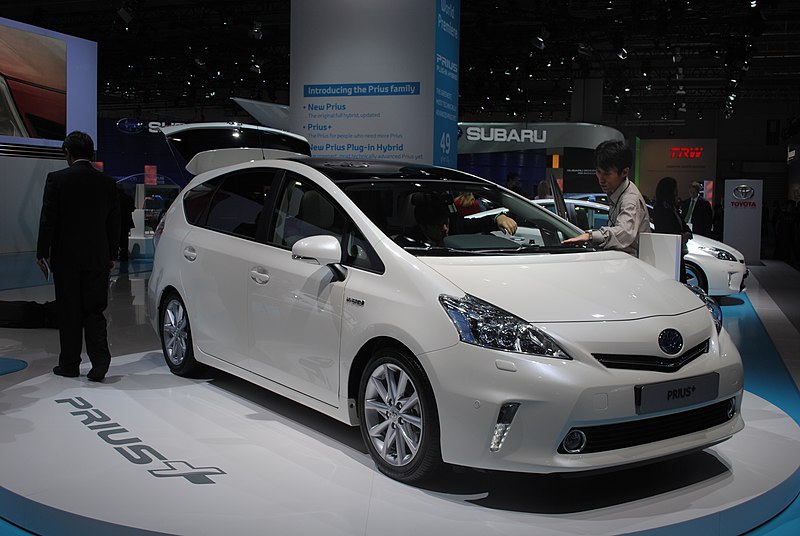 “Gary Johnson’s poll collapse is happening, as predicted,” trumpets the Washington Post‘s Philip Bump. “Gary Johnson flames out,” smirks Steven Shepard at Politico. “Right on Schedule, Gary Johnson’s Poll Numbers Are Crashing,” adds Ed Kilgore at New York magazine. It’s the most coverage the Libertarian presidential candidate has received since he couldn’t come up with the name of an international political leader he really digs, or since he stumbled on the name of the Syrian city of Aleppo during an abrupt topic change during an interview.
“Gary Johnson’s poll collapse is happening, as predicted,” trumpets the Washington Post‘s Philip Bump. “Gary Johnson flames out,” smirks Steven Shepard at Politico. “Right on Schedule, Gary Johnson’s Poll Numbers Are Crashing,” adds Ed Kilgore at New York magazine. It’s the most coverage the Libertarian presidential candidate has received since he couldn’t come up with the name of an international political leader he really digs, or since he stumbled on the name of the Syrian city of Aleppo during an abrupt topic change during an interview.
Which, come to think of it, may have something to do with those dropping poll numbers.
To be honest, Johnson makes some of his own trouble. As is frequently and correctly pointed out, he’s not quick on his feet in interviews, he’s awkward before a camera, and he comes off as a bit eccentric. When he stumbles, he doesn’t easily recover. But these qualities were treated as largely positive qualities early on, when it looked like he would provide an alternative for Republican voters disgusted with Trump. “Johnson is a bit of an oddball. But he’s an endearing one, which is more than we can say about Trump and Clinton, two very strange people in different ways,” CBS News’s Will Rahn pointed out in June. Rahn also noted that the Libertarians had “a lot of executive experience for any ticket, let alone a third-party one.”
I think a more serious problem is that Johnson often comes off as if he wants everybody to like him. That might be a good quality in your neighbor, but it’s a dangerous vulnerability in a political candidate sparring with those journalists who are just doing their jobs–let alone hostile interviewers. If you view the people with microphones as the adversaries they are rather than buddies, you’re going to be better prepared for gotcha questions and out-of-context presentation of your comments.
Well, if you’re quick on your feet you will.
But Gary Johnson ran into another very serious “problem” not of his making: He started gathering up voters that Democrats and political forecasters expected to go to Hillary Clinton. “Democrats thought he would take from Trump,” Politico explained last month, “but polls show he’s attracting voters who like neither candidate.” The Hill added, “Democrats panicked by third-party candidates drawing support away from Hillary Clinton are ramping up their attacks against Gary Johnson.” In particular, he began pulling in up to a quarter of millennial voters–younger participants in the political process who might not only break away from the Democratic candidate, but establish long-term voting habits favoring another political party.
Since then, Johnson’s portrayal in the national media has been almost exclusively as a dummy, rather than an “endearing” former two-term governor with very different policy proposals from his Republican and Democratic rivals. You’ve heard an awful lot about his failure to name an international political leader he respects (that’s a gaffe? Why should he be a fan boy for Angela Merkel?), and almost nothing about him, say, polling higher than Hillary Clinton among military voters (the Christian Science Monitor did run a hand-wringing piece that managed to ask “why?” without talking to any actual troops).
But is this really a media pile-on? Maybe it’s journalists in a feeding frenzy, or being lazy, rather than series of a partisan attacks on a candidate who threatens their preferred contender.
But that’s not what some journalists who have held their own shit together see happening with their colleagues.
“The number of mainstream media reporters who are out there expressing their explicit opinions, that tend to be decisively pro-Hillary and anti-Trump, to me is scary,” commented Jim VandeHei, who co-founded Politico and is no longer with the publication.
The media is “not even trying to hide it anymore” in terms of political leanings noted an op-ed in The Hill by Joe Concha, one of the publication’s own media reporters.
“Journalists shower Hillary Clinton with campaign cash,” the Center for Public Integrity reported just last week.
And indeed, among the more interesting revelations (in a series of them) to come out of the Podesta emails published by Wikileaks has been the “Clinton campaign’s cozy press relationship,” as noted by The Intercept (there is a very good reason why so many journalists have fallen out of love with the transparency site). Clinton staffers discussed “friendly journalists” with whom they could place stories, wined and dined them at off-the-record parties, and signed off on articles about the campaign.
And that coziness does seem to have an impact. You’ll find plenty of discussion of the Aleppo gaffe. But just try to find media mentions of the British Parliament’s report last month condemning American-British-French military intervention in Libya in 2011, which it held responsible for “political and economic collapse, inter-militia and inter-tribal warfare, humanitarian and migrant crises, widespread human rights violations, the spread of Gaddafi regime weapons across the region and the growth of ISIL in North Africa.” Clinton, you’ll remember, was Secretary of State at the time with responsibility for U.S. foreign policy, including our part in that Libyan catastrophe.
And try to dig up a story or two outside the ideological or foreign press about the Clinton Foundation accepting donations from the governments of Saudi Arabia and Qatar after her State Department identified them as funders of ISIS.
Yes, Trump has (a few) media supporters too. Many of them are at Fox News which has several overt cheerleaders for the populist-nationalist candidate on its schedule. And yes, most journalists target the blustery Republican candidate while favoring Clinton. While he makes much of his own trouble, there’s no doubt who the majority of news people want to see in the White House.
And that leaves little room for anything but hostile coverage of a presidential candidate who challenges the overtly preferred candidate of the majority of journalists, and the favorite of a small minority, and who, frankly, kind of sucks at publicly fencing with interlocutors who are out for blood. Johnson is being skewered on camera and in print by reporters who are essentially operatives for his opponents in the election, and he’s pretty terrible at turning the tables on them.
Would any candidate be better in this position?
Any Libertarian nominee who started eating into Hillary Clinton’s presumed voting base would certainly have faced media hostility. But we can imagine candidates who would be faster on their feet in fielding surprise questions, more realistic about the inclinations on the journalists facing them, and more combative and energetic in responding to spin.
The problem comes in turning that imagination into an actual human being who wants to run for office. Johnson’s main opponents in seeking the Libertarian nomination this year were John McAfee, of tech and venture capital fame, and Austin Petersen, a libertarian activist and media entrepreneur.
McAfee is media savvy and cultivates his own image; the “crazy” persona he presents is at least partially intentional. I’m told by those who have interviewed him that he’s rather more serious and balanced in person. He might well have pursued some version of the down-the-middle strategy favored by Johnson-Weld, drawing votes from those who would otherwise have favored both Clinton and Trump. But charismatic and savvy as he is, his edgy image is only partially cultivated–he really is a “person of interest” in a murder in Belize, and he faced drunk-driving and firearms charges just last year. McAfee’s explanations may be perfectly truthful, but there’s no way that a hostile press would have passed up a chance to fill headlines about a strongly polling McAfee candidacy with the words “murder,” “drugs,” and “guns.”
Petersen doesn’t have the government or business credentials of Johnson or McAfee, but he does have media experience and polish. He would have likely run a different campaign, leaning toward the right with an eye to scooping up “never Trump” voters. To the extent that they’re sincere, the pro-life, conservatarian Petersen is what disappointed Republicans mean when they say they wish the LP would run a “real libertarian.” (That some of them then go and support a hawkish, authoritarian, ex-CIA, former Goldman Sachs mini-candidate–something of a larval Hillary Clinton–demonstrates the limits of that sincerity). It’s unlikely that he would have faced the same media hostility if he was gathering mostly never-Trump Republican voters, but it’s also unlikely that he would have made anything like Johnson’s headway among millennials and Sanders supporters.
The other contenders for the nomination were relative unknowns outside of the Libertarian Party. They came off as perfectly sincere activists devoted to the cause, but without much to grab the attention of people not already committed to the movement. Could one of them have risen to the occasion and molded a credible campaign that ventured into double-digit polling support–and then fended off a full assault by a hostile media? It’s possible, but none demonstrated that potential during the campaign for the nomination.
So yes, we can imagine a candidate for president better prepared than Gary Johnson to not only mount a serious run for the presidency but also to duel with hostile pundits. That candidate may well exist as a real person or multiple people. But it’s not apparent from the evidence that such a candidate actually sought to run in 2016.
But the Libertarian Party is going to need that sort of a candidate in the future as it seeks to build on this year’s high profile and make bigger waves in 2020 and beyond. If Johnson ultimately wins 5 percent or better of ballots, the LP qualifies for public funding from voluntary taxpayer checkoffs for the next general election. Given that the money is freely given, not coerced, the LP should seriously consider accepting what could be millions of dollars–and an enhanced opportunity to disrupt what will probably, again, be a contentious presidential campaign.
And given that the media has demonstrated its overwhelming pro-Democratic partisanship, and is highly unlikely to become more diverse in its views or less enthusiastic in its activism over the next four years, Libertarians (or any serious third-party candidates who threaten to “poach” donkey party votes) will need to be not just credible contenders for office, but accomplished sparring partners for their media opponents.


 “Gary Johnson’s poll collapse is happening, as predicted,”
“Gary Johnson’s poll collapse is happening, as predicted,” 






Recent Comments